Rainbow Waves……..From ‘Wild Justice’……
by Bernie Bell - 08:54 on 29 September 2025
Rainbow Waves……..
Last Saturday…….Marwick…..
https://theorkneynews.scot/2018/04/20/orkney-walks-marwick-bay-left-or-right/
V. Windy….Big Waves…..
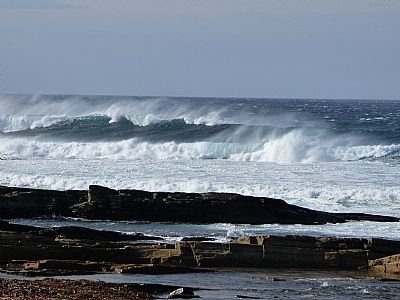
Rainbows in the waves….
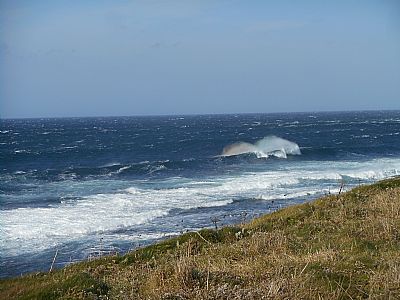
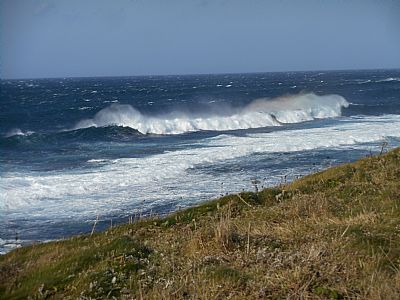
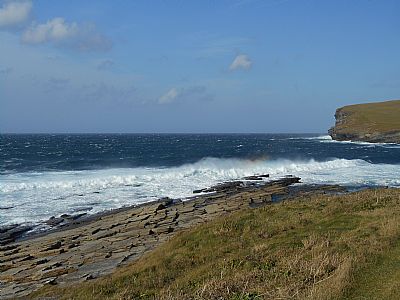
Then, the Orkney Brewery for lunch – which closes for the winter on the 11th of October - so – get it while you can….
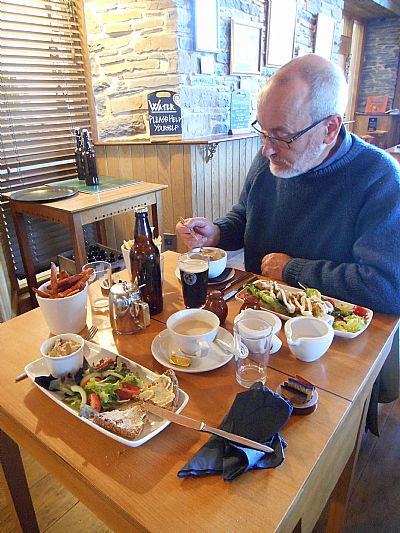
***************************************************************************
From ‘Wild Justice’…..
“Today we bring you a Sunday newsletter (unusual for us) in which we share with you our thoughts on a new consultation on rodenticides from the Health and Safety Executive (HSE), and we ask you to consider responding to it, please.
A new consultation from the HSE on the subject of rodenticides (rat poison) closes very soon, on Tuesday 30th September 2025. In our opinion, it’s a pretty bad consultation – it’s restrictive, with a short timescale, and has limited focus on GB alternatives. It’s not particularly accessible or easy to digest. But we still need as many of you as possible to respond to it.
But more on that later – firstly, a bit of background…
Rodenticides poisoning wildlife – where we’re at:
Last year Wild Justice published a report about rodenticides called Collateral Damage – click here to read it. The report analysed the Government’s Rodenticide Stewardship Scheme, which was implemented to try and reduce rodenticide exposure in wildlife. We looked at data on rodenticide poisoning – specifically the use of Second Generation Anticoagulant Rodenticides (SGARs) - in Buzzards and Red Kites to check if the scheme was working.
Unsurprisingly it determined that it wasn’t. That, and another study from last month showing that 91% of Otters tested had been exposed to SGARs show us that the Rodenticide Stewardship Scheme is failing to reduce rodenticide exposure in wildlife (you can read several reports on the Wildlife Poisoning Research UK website – click here).
A shoddy consultation:
Now, the HSE - which controls the approval regime in the UK for rodenticides and decides what can be used and what cannot - has announced a consultation on rodenticides. The consultation looks at what alternatives to Second Generation Anticoagulant Rodenticides (SGARs) are available.
Although this is meant to be a ‘public’ consultation, there appears to have been very little publicity informing the general public or conservation bodies that this exercise is taking place. Of course, it’s likely the pest control industry and the chemical companies will have been informed and will be submitting responses.
What’s the consultation about?
If the HSE is going to continue approving these poisons it needs to argue that there are no other viable alternatives available to control rodents. There are lots of large chemical companies that want this to happen and to maintain the status quo; SGARs are highly profitable and we can expect producers of these poisons to be lobbying hard to make sure they can continue to make and sell them.
As we know, current ineffective rodenticide regulation means the use of SGARs is causing widespread harm to wildlife, including Buzzards, Red Kites (as per our report), Foxes, Otters, and even Peregrine Falcons (see reports here).
What alternatives to SGARs are actually available?
Non-poisons:
The best way to deal with a rodent problem is to prevent it in the first place.
Prevention can include:
· clearing up waste food,
· sealing rubbish bins,
· removing rodent harbourage,
· not over feeding birds and clearing-up waste food
· encouraging wild predators
· and sealing rodent access points into buildings.
You (and us) are ‘rodent controllers’ if you are using prevention rather than lethal means. If a rodent infestation is established, there are other non-poison-based lethal control options (which should always be a last resort).
Poisons:
SGARs are just one group of poisons. There are now a number of products that were once approved for use in the UK, for use in other countries, or will soon to be coming onto the market in other countries, which should have been included in this consultation.
These include:
· Non-SGAR alternative rodenticides such as Cholecalciferol, with which the targeted rodent stops feeding once a lethal intake has been consumed (reducing risk of secondary poisoning of predators and scavengers).
· Zinc Phosphide - a highly effective acute rodenticide.
· DR8 - a product developed with the support of the New Zealand Government which is specific to rats and poses no apparent secondary poisoning risk.
· Carbon Dioxide gas (also known as Rat Ice).
· Contraceptive products such as ContraPest, which controls rat populations by restricting rodent reproduction.
So, if there are alternatives, why is the use of SGARs allowed to continue despite the harm they cause?
A toxic relationship:
This is where it gets interesting. Perhaps the most critical word in this consultation is ‘availability’. Because, despite HSE being the body that approves different rodenticides for use, it’s actually the chemical companies that control the availability of products on the market. They do this by deciding which products they submit for approval. And of course, the decisions around which products they submit are likely based upon which are most profitable and not on their potential environmental impact. It just so happens that SGARs are the most profitable poisons around, so it’s highly unlikely that companies will be submitting other products for approval, unless regulation forces them to.
So – chemical companies are effectively in control of what is and isn’t on the rodenticide market in the UK. Clearly, there is now a role for the regulator (the HSE) to control the market by limiting SGARs (or banning them entirely which we would prefer) in order to encourage chemical companies to introduce less environmentally damaging alternatives.
Some companies making these poisons may suggest that there are no other alternatives (a situation which the companies themselves have created).
But there are good arguments for restricting the use of SGARs:
- There is Increasing evidence of SGAR exposure in wildlife, including exposure in aquatic food chains and in non-rat eating predators (Otters and Peregrine Falcons). It does appear that however bad this situation gets, the HSE seems determined to ignore this evidence.
- There is also evidence that sub-lethal exposure to SGARs in a range of species reduces immunity and increases disease levels. In rats that have been exposed to SGARs and survive there are higher levels of Leptospira, which cause Weil's disease (Murray and Sanchez, 2021). Coincidentally, the need to control Weil’s disease is frequently one of the arguments used by the pest control lobby for the use of SGARs. Now it seems their use may be making the problem worse!
This consultation really is awful…
But this is an opportunity for you to add to the conversation around rodenticides. Anyone can legally go out and buy poisons, and no one checks how they are being used. The chemical companies will want people to believe that SGARs are essential and must be used without any further restrictions being imposed. It is likely that they will always downplay the level of harm SGAR exposure causes to wildlife.
Wild Justice and other organisations are concerned that the timing and structure of this consultation process are not conducive to a fair assessment of alternatives to SGARs. There is a real concern that the HSE’s approach favours maintaining the status quo, potentially due to pressure from chemical companies who benefit financially from the continued use of SGARs.
We suggest that you could usefully spend 20 minutes or so responding to this consultation. What you say is entirely up to you, but we’ve written a bit of guidance in a blog to help you navigate this shoddy consultation – you’ll find a link to the consultation, and our advice on filling it out, by clicking here.
We would also like to say a big thank you to Dr Ed Blane (who runs Wildlife Poisoning Research UK), who has been immensely helpful in sharing background information, data and his valuable expertise on this subject - we wouldn't be doing this work without him. Thank you Ed!
Thank you too for your help - we'll be back later this week with a newsletter about some of our other recent activities.
Wild Justice (CEO: Bob Elliot. Directors: Chris Packham and Ruth Tingay)."
Add your comment
